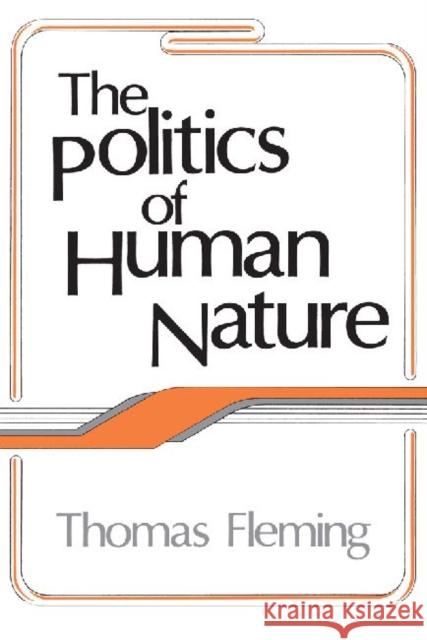The Politics of Human Nature » książka
The Politics of Human Nature
ISBN-13: 9781560006930 / Angielski / Miękka / 1988 / 250 str.
The Politics of Human Nature
ISBN-13: 9781560006930 / Angielski / Miękka / 1988 / 250 str.
(netto: 223,85 VAT: 5%)
Najniższa cena z 30 dni: 226,63
ok. 22 dni roboczych.
Darmowa dostawa!
The effort to understand human nature in a political context is a daunting challenge that has been undertaken in a variety of ways and by a myriad of disciplines through the ages. From Plato to Hobbes and Burke, to Wallas and Oakeschott in our era, efforts have been made to provide some organic framework for the political study of mankind. What has added greatly to the complexity of the task is the increasing denial, even rejection, in the positivist and behaviorist traditions, of the very notion of a human nature. The work can be described as a series of interlocking propositions: the proverbial view of human nature can be explained by evolutionary theory. Biological differences between men and women are responsible for family, community and group life. Social evolution goes through stages which are recapitulated in the moral life of individuals. A well-defined federal system mirrors human development. And finally, for Fleming, most problems in social and political life stem from violations of this federalist system. Fleming's volume takes up a variety of issues: sex and gender differences, democracy and dictatorship, individual and familial patterns of association. He does so in the context of showing how forms of legitimate authority such as families, communities and nations establish such authority by appeals to human nature, and that these appeals, while presumably resting on empirical evidence, also confirm the existence of normative structures. Fleming's work is an effort of synthesis that is sure to arouse discussion and debate. It represents a serious addition to a literature retrieved from the historical dustbins to which it has been repeatedly consigned.











